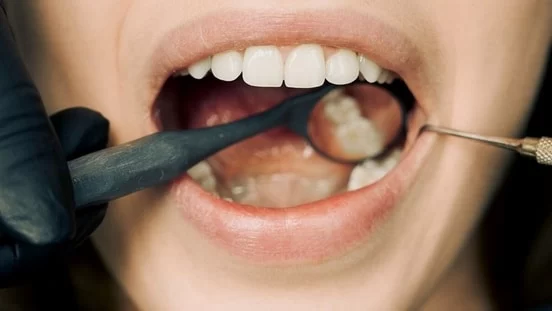
- understanding-the-critical-first-24-hours
- managing-pain-swelling-and-healing
- oral-hygiene-adjustments-you-must-make
- nutrition-hydration-and-habits-to-avoid
- a-real-case-where-good-aftercare-saved-the-smile
- when-to-seek-professional-help
1. Understanding the Critical First 24 Hours
The initial 24 hours after oral surgery are crucial for a safe and smooth recovery. Whether it’s a wisdom tooth extraction, gum graft, or implant surgery, this window of time requires special attention. After the procedure, a blood clot forms at the surgical site to protect the area and support healing. Disrupting this clot can lead to painful conditions like dry socket.
Patients should avoid rinsing their mouth vigorously, using straws, or brushing near the site during this time. Ice packs applied on and off for 15–20 minutes can reduce swelling, and resting with your head elevated helps manage inflammation. These practices set the stage for a comfortable healing process.
2. Managing Pain, Swelling, and Healing
2.1 Medication and Pain Relief
Pain after oral surgery is normal, but manageable. Your dentist may prescribe painkillers or recommend over-the-counter medication like ibuprofen. It's important to follow dosage instructions exactly and avoid taking aspirin, which can increase bleeding.
2.2 Dealing with Swelling
Swelling tends to peak 48 to 72 hours after surgery. Cold compresses are effective in the first 24 hours, while warm compresses may help after the swelling has stabilized. Gently applying heat improves blood circulation, promoting faster healing.
2.3 Monitoring for Infection
Signs of infection include persistent pain, foul taste, swelling that worsens, or fever. If any of these symptoms appear, do not hesitate to consult a dentist. Dentistry Toothtruth can help you find prompt care from a trusted provider.
3. Oral Hygiene Adjustments You Must Make
3.1 Modified Brushing Techniques
Post oral surgery care requires a careful approach to oral hygiene. You shouldn’t brush the surgical site directly for at least 48 hours. Instead, gently brush other areas using a soft-bristled toothbrush. Resume brushing the surgical site only when your dentist advises it’s safe to do so.
3.2 Salt Water Rinse: A Gentle Healer
After the first 24 hours, warm salt water rinses can help keep the area clean and reduce bacteria. Mix half a teaspoon of salt in a cup of warm water and rinse gently—never swish forcefully.
3.3 Avoid Commercial Mouthwash Initially
Most mouthwashes contain alcohol, which can irritate sensitive tissues. Wait until the site has healed before returning to your usual oral care products unless your dentist provides a specific recommendation.
4. Nutrition, Hydration, and Habits to Avoid
4.1 What You Eat Impacts Healing
Your diet plays a major role in recovery. Stick to soft, cool, and nutritious foods like yogurt, mashed potatoes, scrambled eggs, or smoothies. Avoid hard, crunchy, or spicy foods that may irritate or damage the healing site. Staying nourished gives your body the energy it needs to recover.
4.2 Stay Hydrated—but Skip the Straw
Drinking plenty of fluids is essential, but avoid using straws for at least a week. The suction can dislodge blood clots and delay healing. Water is best; avoid hot drinks, carbonated sodas, and alcohol until you're fully healed.
4.3 Habits That Hinder Healing
Smoking and alcohol consumption are major barriers to healing. Tobacco restricts blood flow and increases the risk of infection, while alcohol can interfere with medication and tissue recovery. If you’ve ever thought about quitting, recovery is the perfect opportunity to start.
5. A Real Case Where Good Aftercare Saved the Smile
David, a 42-year-old teacher from San Diego, underwent gum surgery due to periodontal disease. Although he was initially nervous about the recovery, he strictly followed his post-surgery care routine. He avoided spicy food, used salt water rinses as directed, and stayed away from alcohol and tobacco. Thanks to his diligence—and guidance from a Dentistry Toothtruth recommended provider—David's gums healed beautifully within three weeks, preventing further tooth loss.
His story shows how proper care isn’t just about avoiding complications—it’s about ensuring long-term oral health. Every small effort counts.
6. When to Seek Professional Help
Even with the best aftercare, complications can occur. Persistent bleeding, sharp pain, swelling after 72 hours, or signs of infection warrant immediate dental attention. Never try to self-diagnose or wait it out. The sooner you act, the better the outcome. At Dentistry Toothtruth, we can connect you with dental professionals experienced in post-surgery care who will prioritize your comfort and recovery.
Taking care of your teeth after oral surgery is more than just a recovery plan—it's an investment in your future smile. Follow these steps, stay mindful of your body’s signals, and don't hesitate to seek expert help when needed.







 Sherman Oaks Dental5.0 (64 review)
Sherman Oaks Dental5.0 (64 review) Hawthorn Woods Family Dental Care5.0 (535 review)
Hawthorn Woods Family Dental Care5.0 (535 review) Southside Orthodontics - Your Colonial Heights and Chesterfield Orthodontist4.0 (274 review)
Southside Orthodontics - Your Colonial Heights and Chesterfield Orthodontist4.0 (274 review) Dr. Wayne E. Turk, DMD5.0 (3 review)
Dr. Wayne E. Turk, DMD5.0 (3 review) Sapphire Family Dental (Dr. Amy Chi, Dr. Emily Allen & Dr. Steven Rzepecki)4.0 (208 review)
Sapphire Family Dental (Dr. Amy Chi, Dr. Emily Allen & Dr. Steven Rzepecki)4.0 (208 review) Boyles Dental5.0 (474 review)
Boyles Dental5.0 (474 review) The Importance of Oral Health Education During Pregnancy for a Healthy Pregnancy
The Importance of Oral Health Education During Pregnancy for a Healthy Pregnancy Best Tips for Brushing Your Teeth Properly for Healthy Gums: Essential Techniques for Oral Health
Best Tips for Brushing Your Teeth Properly for Healthy Gums: Essential Techniques for Oral Health Why Skipping Dental Checkups Can Lead to Bigger Oral Health Problems
Why Skipping Dental Checkups Can Lead to Bigger Oral Health Problems Advantages of Porcelain Dental Restorations
Advantages of Porcelain Dental Restorations How Can Diabetes Cause Tooth and Gum Problems? Preventing and Managing Oral Health Issues
How Can Diabetes Cause Tooth and Gum Problems? Preventing and Managing Oral Health Issues Healthy Habits for Promoting Good Oral Health and Hygiene: Tips for a Healthy Smile
Healthy Habits for Promoting Good Oral Health and Hygiene: Tips for a Healthy Smile